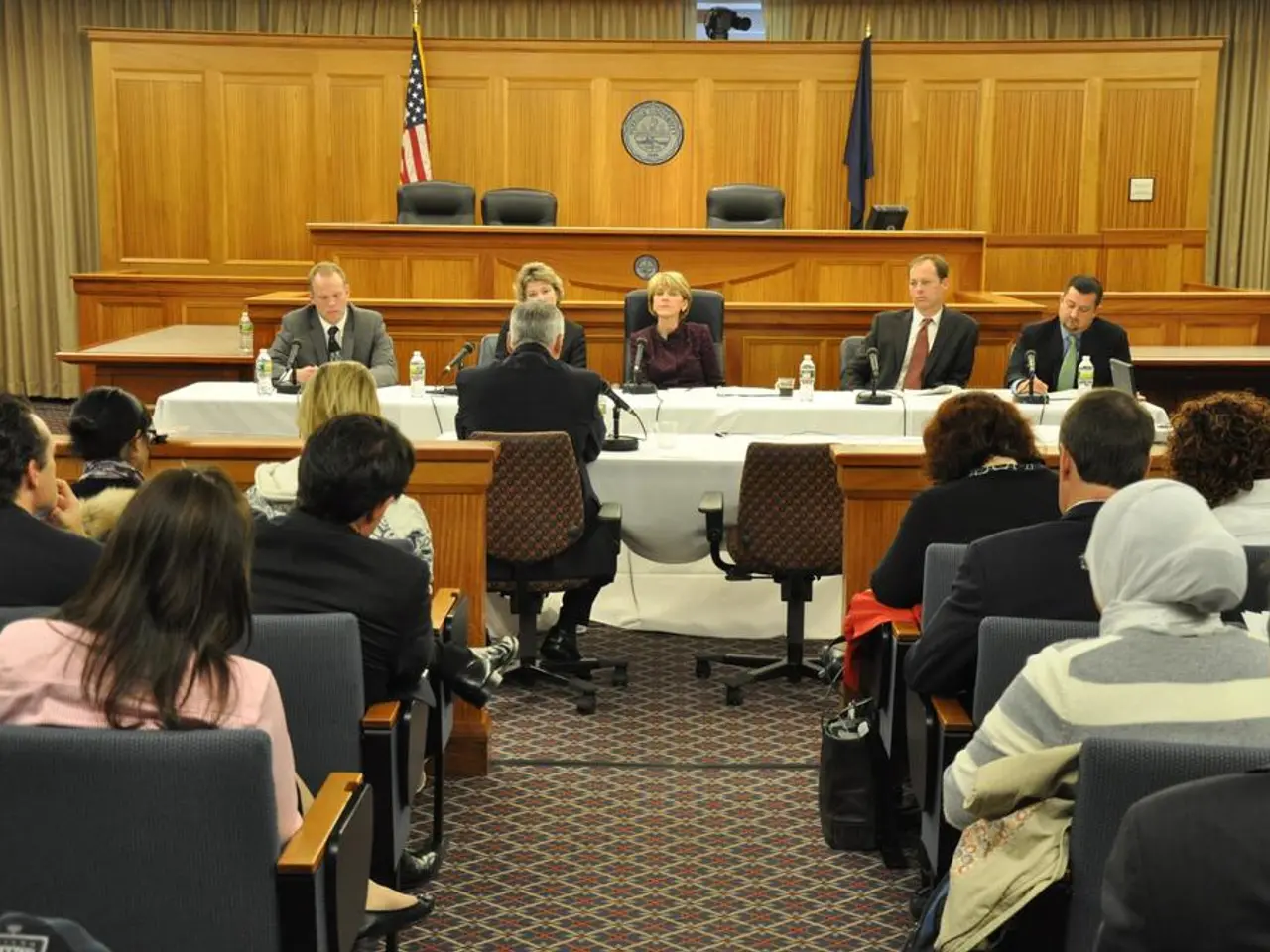Asylum Seeker Granted Temporary Social Benefits Amidst Controversial Regulations
Preliminary decision: Individual under threat of expulsion still eligible for social assistance - Immediate action: short-term continuation of welfare assistance for individuals forced to relocate
In an unexpected turn of events, a young Afghan man, who entered Germany in 2024, has been granted temporary access to social benefits. The court's decision comes amidst ongoing debates concerning the European Union's asylum policies, leaving numerous migrants in a state of limbo.
The man initially applied for asylum in Germany, having entered via Turkey with a Polish Schengen visa. His asylum application was rejected by the BAMF, the German Federal Office for Migration and Refugees, but the deportation was unsuccessful twice due to his absence from his designated accommodation.
Under the European Dublin regulations, the asylum seeker was obligated to apply for asylum in the country of his arrival in the EU. Yet, the State Social Court determined that deportation back to Poland was not feasible due to logistical and legal complications.
Traditionally, Dublin III procedures predominantly result in deportations, making a voluntary departure unlikely. The court's ruling highlights the complexities involved in migration policies, as well as the potential involvement of the European Court of Justice in Luxembourg, which might weigh in on the compatibility of new regulations with European minimum standards for asylum seekers' subsistence.
Social Benefits for Asylum Seekers in Germany
Asylum seekers in Germany initially receive restricted social benefits for the first 36 months of their stay. This includes limited healthcare services and other assistance tailored to treat acute medical conditions or provide necessary treatments, vaccinations, and preventive check-ups. Notably, pregnant women and new mothers receive additional support.
After the 36-month mark, asylum seekers become entitled to "standard" social benefits, aligned with those received by German citizens on social assistance. However, in 2024, a reform known as the Rückführungsverbesserungsgesetz (Act to Improve Removals) extended the waiting period for access to full social benefits and tightened limits on benefits during the removal process, inviting criticism from advocacy groups like PRO ASYL.
Benefit Distribution and Reception Conditions
Centralized reception centers, such as AnkER, continue to operate in various German states, managing the influx of asylum seekers and implementation of return procedures. Introduced in May 2024, a payment card system controlling benefit distribution has sparked criticism and legal challenges due to the restrictions it imposes on asylum seekers' access to their benefits.
The Future of Social Benefits for Asylum Seekers in Germany
As the Afghan man's case progresses, the European Court of Justice in Luxembourg may offer further guidance on the compatibility of the new regulations with European minimum standards for asylum seekers' subsistence. Regardless, the broader issues around humanitarian protection obligations and migration management policies persist, as Germany grapples with finding a balance between the two.
(Insights: The current regulations for social benefits for asylum seekers in Germany are influenced by length of stay and the feasibility of deportation. Notably, after 36 months, asylum seekers become entitled to "standard" social benefits. However, reforms in 2024 aimed to tighten limits on benefits during the removal process. Critics argue that these reforms increase difficulties in accessing essential healthcare and raise constitutional concerns. Centralized reception centers and payment card systems for benefit distribution are among recent changes. Cases where deportation is not practically possible may see the involvement of the European Court of Justice.)
The court's ruling in the case of the young Afghan man might influence the policy-and-legislation surrounding social benefits for asylum seekers in Germany, particularly regarding the Rückführungsverbesserungsgesetz and its compatibility with European minimum standards. This could potentially lead to changes in politics surrounding general-news topics, such as migration management and humanitarian protection obligations within the European Union's institutions.
With the Afghan man's case under review by the European Court of Justice, vocational training programs for asylum seekers within community institutions might experience increased focus and funding, as Germany seeks to address the skills gap among migrants and improve their integration into the workforce upon receiving permanent residency.






